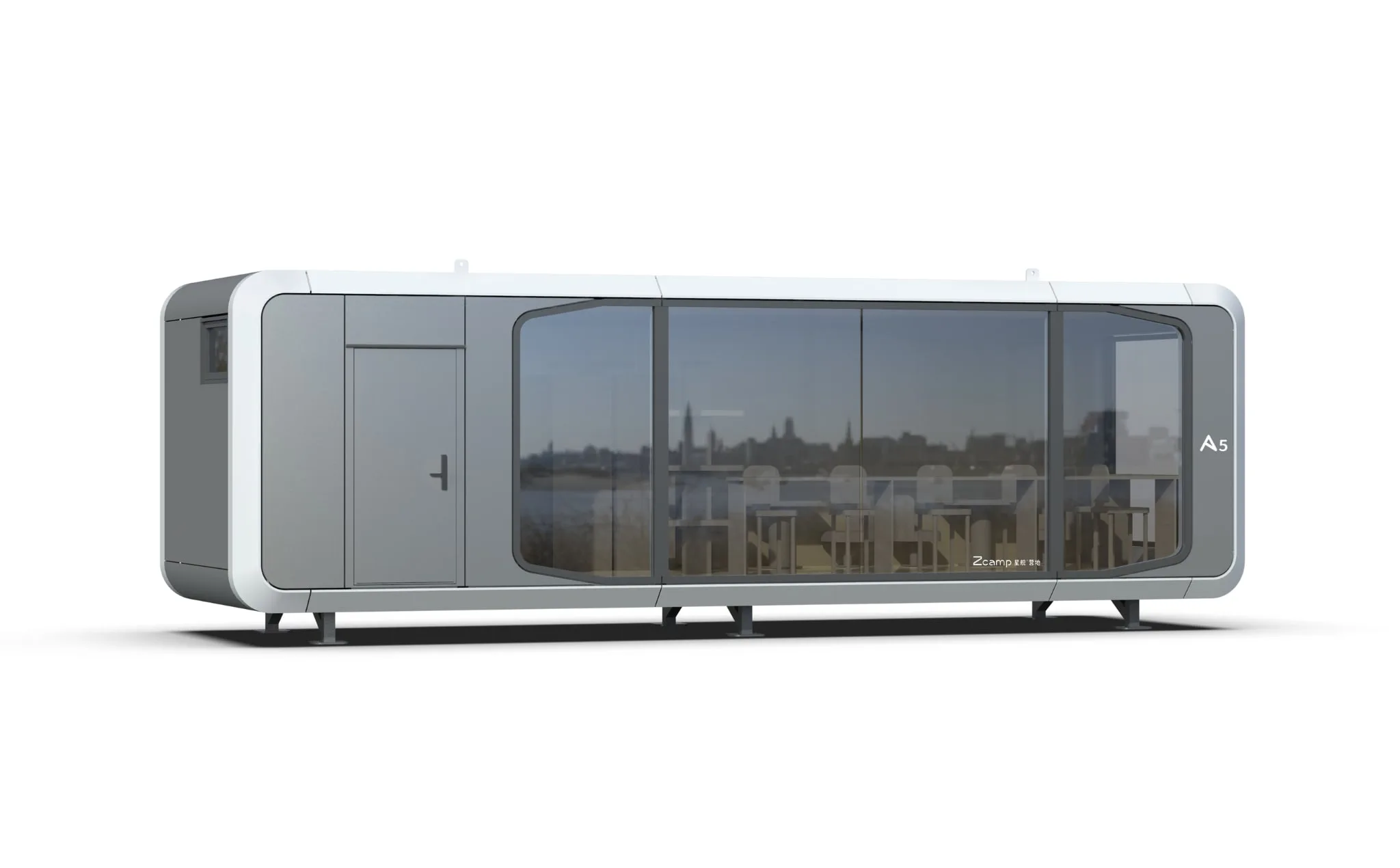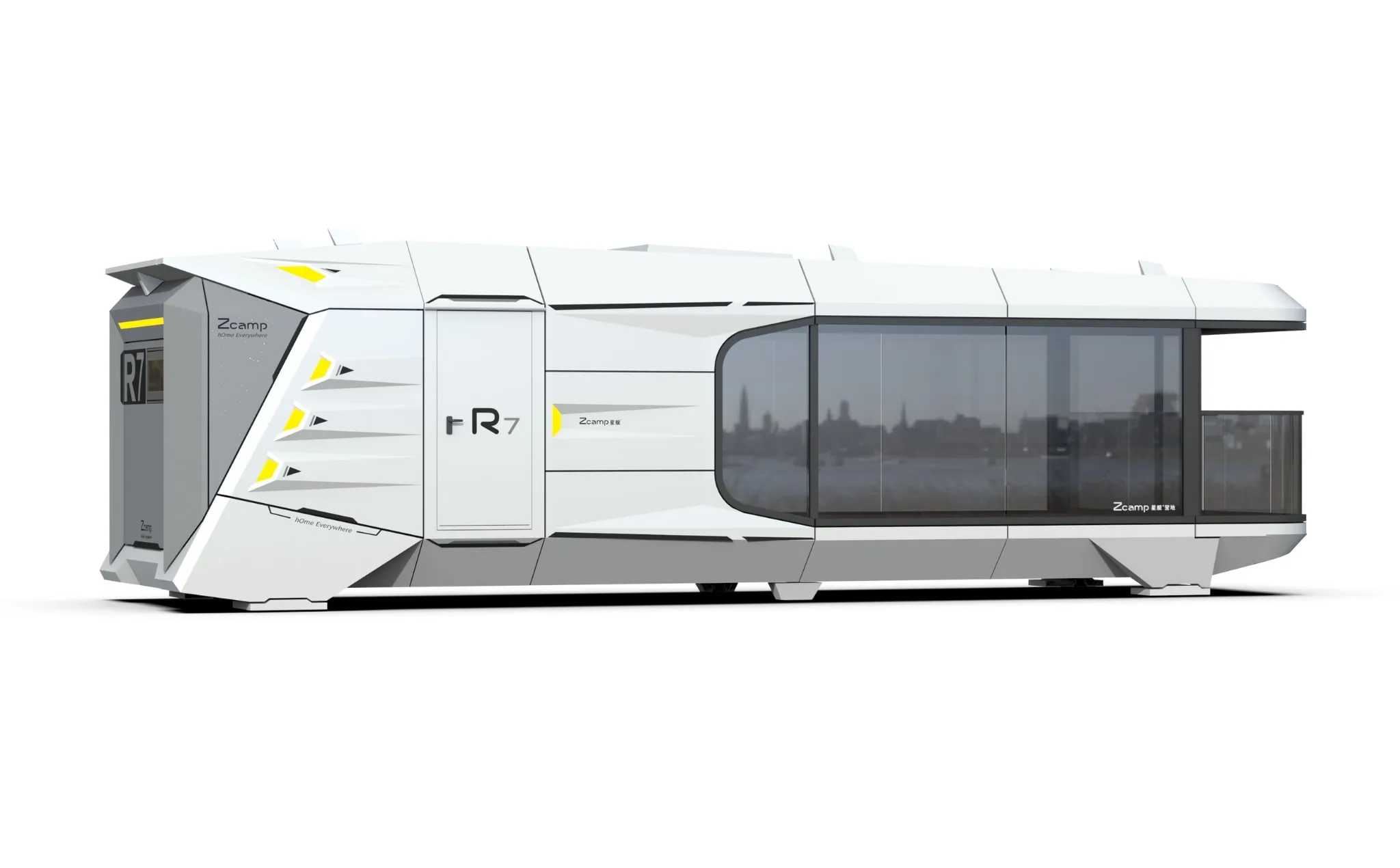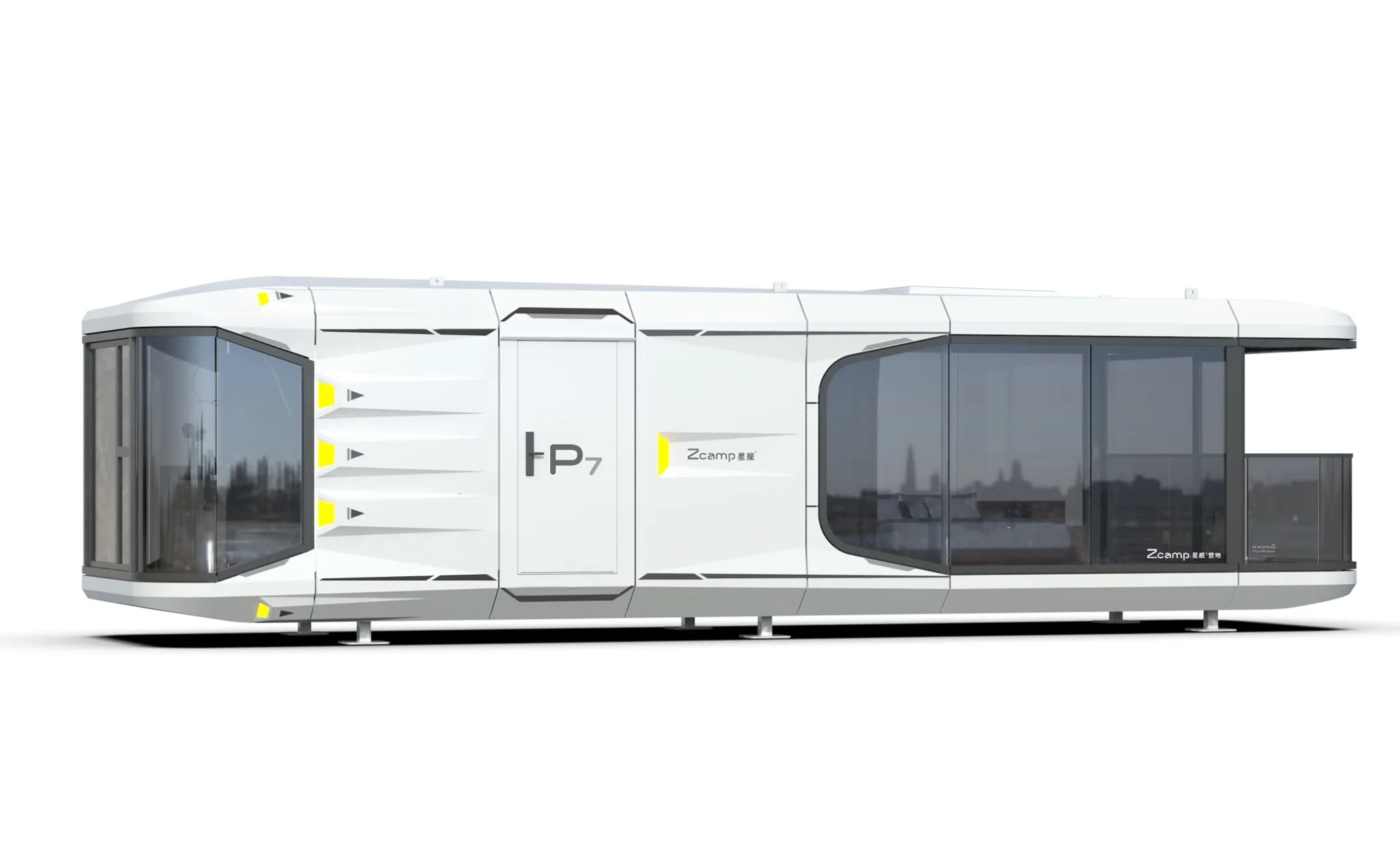As the pace of modern life accelerates and urbanization continues, people increasingly seek to escape the hustle and bustle of city life and return to the embrace of nature. However, while traditional outdoor camping offers an opportunity to connect with nature, it often struggles to guarantee comfort and convenience. To address this issue, the outdoor Capsule House has emerged as the ideal choice for those seeking a natural lifestyle without sacrificing modern amenities.
1. The Origin and Development of Capsule Houses
The concept of the Capsule House originated from Japan’s capsule hotels, which quickly gained global attention for their compact, efficient design and affordability. Capsule hotels are primarily aimed at travelers who need short-term accommodation, offering them a private, secure space to rest. As this concept gained popularity, designers began applying it to outdoor settings, creating a new type of lodging: the Capsule House.
Capsule Houses retain the core idea of capsule hotels but have been significantly improved in design and functionality to meet the unique demands of outdoor environments. Compared to traditional camping tents, Capsule Houses are more durable, capable of withstanding various harsh weather conditions, while providing higher levels of comfort and privacy.
2. Innovation in Design and Functionality
The design of Capsule Houses emphasizes simplicity and practicality, often utilizing modular structures that are easy to transport and install. Their exteriors are typically streamlined or square-shaped to maximize the use of internal space. While the exterior design is simple, the interior is carefully crafted to offer as many comfort features as possible.
- Space Utilization: The interior space of a Capsule House, though compact, is meticulously designed to meet the basic living needs of its occupants. It usually includes a comfortable bed, simple storage space, lighting, and ventilation systems. Some high-end models even come equipped with a small kitchen, bathroom facilities, and air conditioning, enhancing the quality of the living experience.
- Materials and Structure: To adapt to various outdoor environments, Capsule Houses are typically constructed from lightweight yet durable materials such as aluminum alloys, fiberglass, or eco-friendly wood. These materials not only provide sufficient structural strength but also offer excellent insulation and waterproofing, ensuring that the interior remains warm and dry even in extreme weather conditions.
- Environmental Sustainability: Many Capsule Houses incorporate eco-friendly design principles, using renewable materials and energy-efficient technologies. For example, solar panels can be installed on the roof to power internal devices, while rainwater collection systems are used for drinking and household water storage. Additionally, these houses usually have a low carbon footprint, aligning with modern sustainable living standards.
3. Diverse Application Scenarios
Due to their flexible design and multifunctionality,Capsule Houses are suitable for a wide range of scenarios, catering to different needs.
- Camping and Adventure: For outdoor enthusiasts who enjoy camping and adventure, a Capsule House is an ideal choice. It not only provides a comfortable resting space but also offers safety and security in outdoor environments. Whether in the mountains, forests or by the beach, Capsule Houses can easily adapt to various natural settings.
- Resorts and Ecotourism: Increasingly, resorts and ecotourism destinations are introducing Capsule Houses as accommodation options. These houses can harmonize with natural surroundings while offering guests a unique lodging experience. In these locations, occupants can enjoy modern amenities while being immersed in the beauty of nature.
- Emergency Housing and Disaster Relief: In the event of natural disasters or emergencies, outdoor Capsule Houses can also serve as emergency shelters. Their easy transportation and quick installation make them ideal for temporary housing in disaster-stricken areas. Moreover, their durability and comfort can provide a safe haven for those affected.
- Urban Micro-Homes: As urban space becomes increasingly scarce, Capsule Houses are being adopted in urban micro-home projects. These small-scale homes effectively utilize limited land resources while offering affordable housing solutions, especially for young people and singles.
4. Future Prospects for Capsule Houses
With the growing emphasis on environmental protection and sustainable lifestyles, the market demand for Capsule Houses is expected to continue rising. In the future, designers may further improve their designs, making them more intelligent and personalized. For instance, by integrating smart home technology, the interior devices of a Capsule House could be controlled via smartphones or voice commands, achieving greater convenience. Additionally, the modular design concept will further evolve, allowing these houses to be freely combined and expanded according to the occupant’s needs.
Conclusion:
As a new form of accommodation, the Capsule House successfully combines the comfort of modern living with the purity of the natural environment. Whether for short-term camping experiences or long-term living needs, Capsule Houses can provide a safe, comfortable, and eco-friendly living space. With advancements in technology and evolving design concepts, outdoor Capsule Houses will continue to develop, becoming the preferred choice for those seeking a natural lifestyle.





